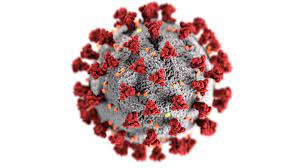COVID-19 and CKD
Key points for CKD patients
- Do not come to the hospital – if you have symptoms that could be Coronavirus, without getting in touch first. You may have to come if its for haemodialysis of course. But if you do not absolutely need to come that day, you will most likely be asked to stay at home
- Do not stop any medications. That includes:
– Immunosuppressive drugs – drugs that affect the immune system, e.g. after a transplant, or for some immune kidney diseases
– ACE inhibitors (drugs ending -pril such as Enalapril, Ramipril)
– Angiotensin receptor blockers (ARBs; drugs ending -sartan such as Losartan, Candesartan)
– SGLT2is (e.g. Dapagliflozin).

Should I have a COVID vaccination?
Yes – almost certainly you should. This applies to everyone with a kidney condition. You should be called for vaccination when it is available. Some kidney patients may also be called for an additional vaccination or other preventive treatments.
All the vaccines available are safe for kidney patients. If looking for further information online, make sure you are reading the latest official NHS advice, not Internet rumours.
The additional risk of being on dialysis or having a kidney transplant is recognised in prioritising vaccinations. And you should go for it – routine doses, and any booster that is recommended.
Those with CKD stages 3 or higher fall into the category of ‘those at increased risk’, although this risk is usually less than for dialysis and transplant patients. Many kidney patients are therefore offered vaccination earlier than you would get it simply by age.
You can still catch it. COVID-19 infection can still occur in fully vaccinated patients, but these are almost always much milder than we see in unvaccinated patients. COVID-19 is still unpleasant, and sometimes serious.
Are kidney patients at increased risk from COVID-19?
Yes, but the degree of risk is different for different groups.
CKD stage 1 or 2 (eGFR 60+) – if you don’t have any other serious conditions, you are not at increased risk.
CKD stage 3-5 (eGFR 59 or less) – risk at eGFR 50-60 is not much increased, but increases progressively as eGFR falls, particularly below 20. The risk for anyone with eGFR less than 15 (stage 5 CKD) becomes closer to the risk for patients on dialysis. Again, it is affected by your age and other conditions.
Transplant patients – are at high risk of getting severe COVID infection if they catch it. During ‘lockdowns’ they were told to ‘shield’, but with vaccination and newer variants of the virus, few people need to be so strict. Your risk will also be affected by your age, and whether you have other conditions. You should discuss with your transplant team, what is safe for you.
Dialysis patients – are also at high risk, and should also take special care. But your risk will also depend on your age and other conditions. Do not miss dialysis, that would make things worse.
Two important exceptions could put you at high risk:
- Nephrotic syndrome – if you have alot protein in your urine at the moment, and low levels of albumin a protein) in the blood – regardless of your GFR
- Taking medicines that suppress the immune system to keep you well – regardless of your GFR.
Risks are additive, so if you are older (e.g. over 60), or have other conditions, and have CKD, your risks are higher. Younger and fitter patients are less likely to get severe disease. Women are also less likely to get severe disease.
I got vaccinated, am I safe now?
Not completely. No vaccine offers 100% protection. This is especially true for transplant and dialysis patients, but also for others taking medicines that reduce immune responses. If you are at increased risk, so please continue to be careful – especially if there is much infection in your area.
If you catch it – patients who are at high risk are more likely to get seriously ill if they catch COVID-19. But the risk is reduced by vaccination. It is important to remember that most who catch the infection recover, even if you are in a group at highest risk.
Summary
We have described COVID-19 and CKD. We hope it has been helpful.
Last Reviewed on 4 April 2024
